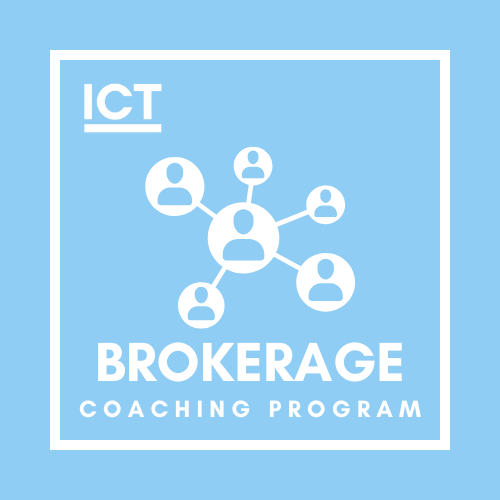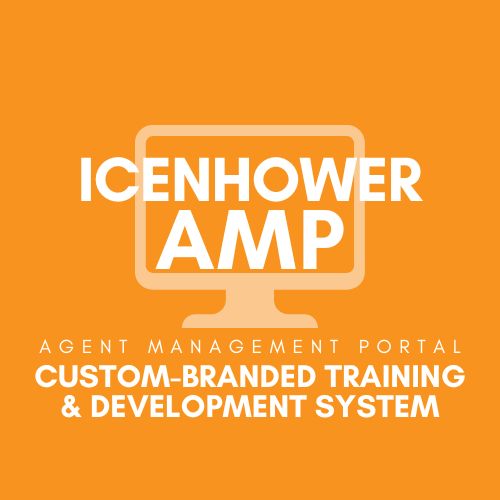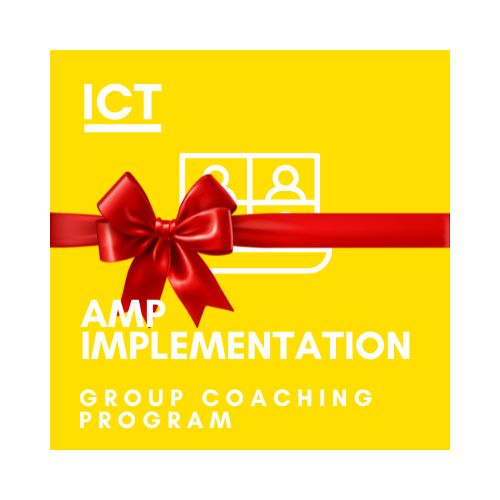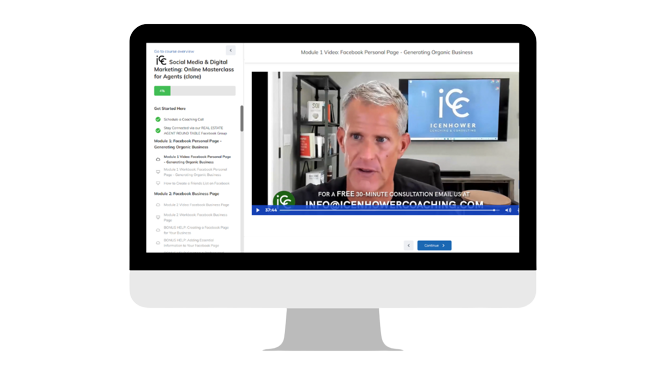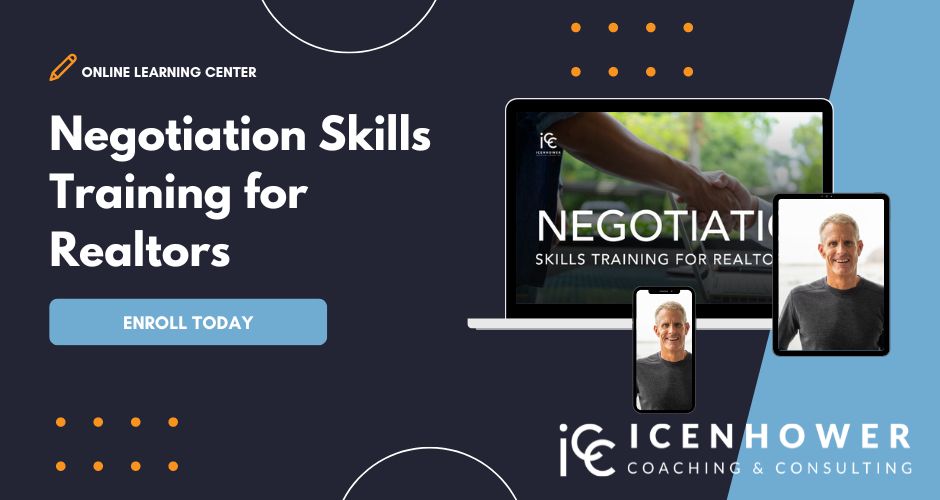The Financial Plan for Real Estate Business - use these tools & models that top agents implement to create wealth and preserve personal time.
Creating a financial plan for your real estate business may not be the most thrilling topic, but it’s one of the most essential for long-term success. At Icenhower Coaching & Training (ICT), we guide high-producing agents, teams, and broker owners through strategic financial planning to help them grow wealth and achieve a balanced lifestyle.
If you’re tired of the “work more, earn more” rollercoaster and want a system that lets you thrive financially and personally, it’s time to design a solid financial plan and operational model.
Be sure to listen to this episode of The Brian Icenhower Podcast and subscribe to the podcast so you never miss an episode!
Podcast: Financial Plan for Real Estate Business – Models You Can Use!
Why a Financial Plan is Essential
A strong financial foundation allows you to manage income effectively, invest in growth, and navigate the cyclical nature of the real estate business. Without a structured financial plan, many agents fall into the trap of feast-and-famine cycles, earning plenty in high seasons but struggling in slower months. This leads to burnout, inconsistency, and ultimately, stagnation. In fact, around 87% of real estate agents don’t make it past their fifth year. A financial plan helps provide stability, supporting steady growth and longevity.
Start with Two Essential Documents
These two documents are straightforward but incredibly powerful in guiding your financial strategy. Your budget sets your goals and financial boundaries, while the P&L statement tracks whether you’re meeting those goals.
- Budget: Think of it as your financial roadmap. It defines where you’re headed and how you’ll manage your spending.
- Profit & Loss Statement: This shows you where you actually are in real time. Ideally, update it monthly to see how well you’re adhering to your budget and whether you’re operating within a healthy framework.
While you might be tempted to handle these documents yourself, a qualified accountant will make this process smooth and accurate. An accountant with administrative access to your accounts can generate up-to-date P&L statements, ensuring your business finances stay on track without the hassle.
Icenhower Connect allows team leaders, brokers, and owners to become entrepreneurs by adding integrated mortgage and insurance services their customers and agents already need to their existing real estate business.
Leverage a Full-Service Accountant as Your CFO
A great accountant functions as a Chief Financial Officer (CFO) for your business. By giving your accountant limited administrative access, they can:
- Monitor and update your P&L monthly, so you always have an accurate view.
- Estimate and pay quarterly taxes based on actual earnings, reducing year-end tax shocks.
- Advise on strategic spending at the year’s end to help you minimize tax liability and maximize deductions.
With this structure, you’re not managing spreadsheets; your accountant is providing you with ready-to-use financial data to keep your business healthy and aligned with your goals.
Organize Your Finances with Four Key Accounts
Having separate accounts for different purposes will help you manage cash flow more effectively. ICT recommends setting up the following four accounts:
- Business Operating Account: The hub for all business transactions. Deposit all business income here and pay expenses directly from this account.
- Tax Payment Account: Monthly, transfer a portion of your income to this account, then use it to pay quarterly taxes.
- Investment & Savings Account: Regularly allocate a set amount to this account to fund investments in properties, stocks, or other assets.
- Personal Household Expenses Account: Transfer a monthly amount for personal use. This keeps business and personal finances distinct.
Your accountant only needs access to the business operating account, which simplifies year-end tax preparation and keeps your finances transparent.
-
Quick View
Brokerage / Corporate Coaching Program
$1,500 / monthWith the Brokerage / Corporate Real Estate Coaching Program, ICT will help firms set up the most effective and efficient systems for recruiting, agent onboarding, commission & fee structures, agent engagement & retention systems, recruiting, administrative work-flows, transaction management, staff hiring, agent onboarding, productivity training & accountability, financials & budgeting, marketing and much more!
How to Interpret a Profit & Loss Statement
A P&L statement is a simple yet critical tool. Each month, it lists:
- Income: All revenue generated by your business.
- Expenses: Categorized and itemized to track where funds are going.
- Net Income: Income minus expenses, reflecting your actual earnings.
For business growth, consider setting up a formal structure such as an LLC or S Corporation to reduce tax liability. This can allow you to pay yourself a salary and even claim certain expenses that directly benefit your tax situation.
Real Estate Budget: Your Blueprint for Success
A real estate-specific budget keeps you focused on income-generating activities. By budgeting with your revenue in mind, you’ll ensure a balanced mix of growth investment and expense control. ICT provides downloadable templates that outline target expense percentages based on production levels. For instance:
- Administrative Salaries: Around 12% of GCI (Gross Commission Income) should go to administrative support, including roles like a transaction coordinator or assistant.
- Marketing & Lead Generation: Allocate about 10% of GCI toward these efforts to sustain growth. This investment is crucial for scaling and reaching higher production levels.
A well-structured budget outlines these categories and guides you in setting expense limits tied to your production goals. This keeps you on track to increase your net income even as you invest in business development.
Master Cost of Sale vs. Operating Expenses
Real estate expenses generally fall into two categories:
- Operating Expenses: These are fixed monthly costs, such as rent, salaries, and technology. Aim to keep operating expenses at around 30% of GCI.
- Cost of Sale: Expenses that arise when you close a deal, like franchise fees, broker fees, and transaction coordinator payments. This should also target 30% of GCI.
With an ideal split, you’re left with 40% of GCI as net income. This structure allows for reliable profitability while covering essential business functions and growth costs.
Scaling Your Real Estate Business
As you grow, the financial plan for your real estate business should evolve with you. With increased production, your cost of sale may rise as you bring on more agents or team members. For example, high-volume real estate teams may see cost-of-sale percentages as high as 45-50% due to higher payouts to agents.
While this reduces profit margins, it increases your dollar-based net income. In the long run, reducing profit margins to support growth is a sign of a healthy business. Large businesses like Walmart operate with profit margins of only a few percent, yet their owners benefit from immense earnings due to scale.
Learn more about the Agent Management Portal
Looking for the best way to add value for your agents? The Agent Management Portal is a powerful learning management system. You get access to all of our state-of-the-industry training materials, as well as tools to help you create your own training content for your agents.
The Importance of a Coach in Financial Planning
Building and adhering to a financial model that supports growth while protecting your time and well-being can be challenging. Many agents find they need accountability and guidance to maintain discipline and make tough investment choices. As the saying goes, success leaves clues. Working with a coach can help you follow a tested roadmap, guiding you to keep expenses balanced with production and ensure continued growth.
Building Wealth Beyond Real Estate Transactions
One of the ultimate goals of a financial plan is to create a self-sustaining business. Many successful agents reach a point where they’re not personally involved in sales but still receive substantial income from their business. Free from the daily grind, they can open other ventures, like mortgage companies, property management businesses, or even expansion teams. This freedom allows them to focus on new opportunities, invest more, or enjoy their life on their terms.
A well-structured budget outlines these categories and guides you in setting expense limits tied to your production goals. This keeps you on track to increase your net income even as you invest in business development.
Brian Icenhower
Final Thoughts
By implementing a well-organized financial plan and sticking to a budget model, you’ll be able to maximize your net income while scaling your real estate business. ICT has helped countless agents transition from an unpredictable income stream to a steady, growing business model that lets them enjoy the fruits of their labor. If you’re ready to make that change, we’re here to help guide you every step of the way.
A solid financial foundation is more than just numbers—it’s the path to a balanced, prosperous, and fulfilling real estate career. Stick to your plan, adjust with growth, and don’t hesitate to reach out for support to keep you on track.



